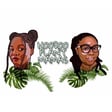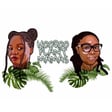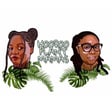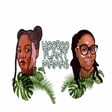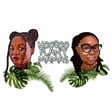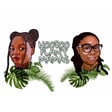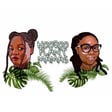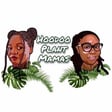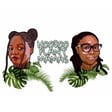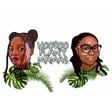
Ep 50: Discovering Our Sensual Selves
CONTENT WARNING // STORIES OF CHILDHOOD SEXUAL HARASSMENT AND ASSAULT
In this episode, Dani and Leah discuss their journey of coming into their sensual selves. We talk about how traumatic puberty was for us as Black girls living in the Bible Belt, separating compulsory heterosexuality from desire, and having to stitch together our sexuality in our twenties. We highlight the life of Mather Catherine Seals, the Temple of Innocent Blood, and the inspiring work she accomplished in her short life.
RESOURCES
- African Goddess Rising Oracle: A 44-Card Deck and Guidebook by Abiola Abrams
- "A Night at Fontaine's: A Spicy Romance Short" by Leah Nicole Whitcomb
- Conjuring the Calabash: Empowering Women with Hoodoo Spells & Magick by Mawiyah Kai El-Jamah Bomani
- "Mother Catherine Seals And The Temple Of The Innocent Blood" by TriPod : New Orleans at 300
- "Mother Catherine" Short Story by Zora Neale Hurston
Create your podcast today! #madeonzencastr
BOOKSHOP
https://bookshop.org/shop/hoodooplantmamas
Apocalypse Still by Leah Nicole Whitcomb
bloom by Leah Nicole Whitcomb
About the Boy by Leah Nicole Whitcomb
BE A PATRON!
https://www.patreon.com/hoodooplantmamas
SOCIAL MEDIA
Twitter: @hoodooplants
Instagram: @hoodooplantmamas
DONATE
Paypal: paypal.me/hoodooplantmamas
Cashapp: cash.me/$hoodooplantmamas
This podcast was created, hosted, and produced by Dani & Leah.
Our music was created by Ghrey, and our artwork was designed by Bianca.
